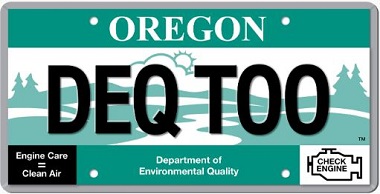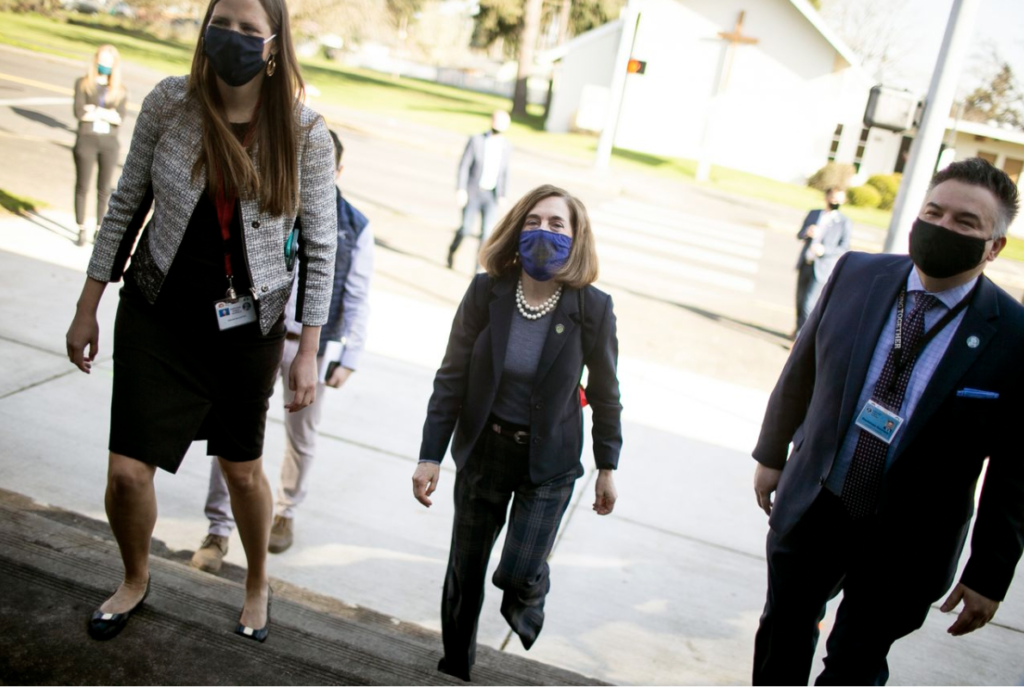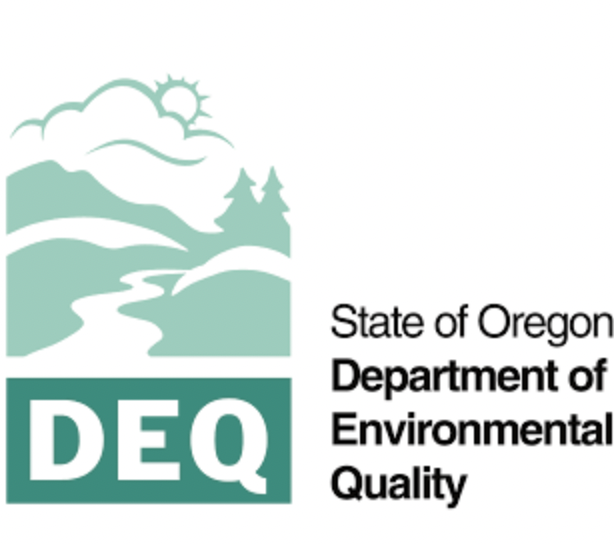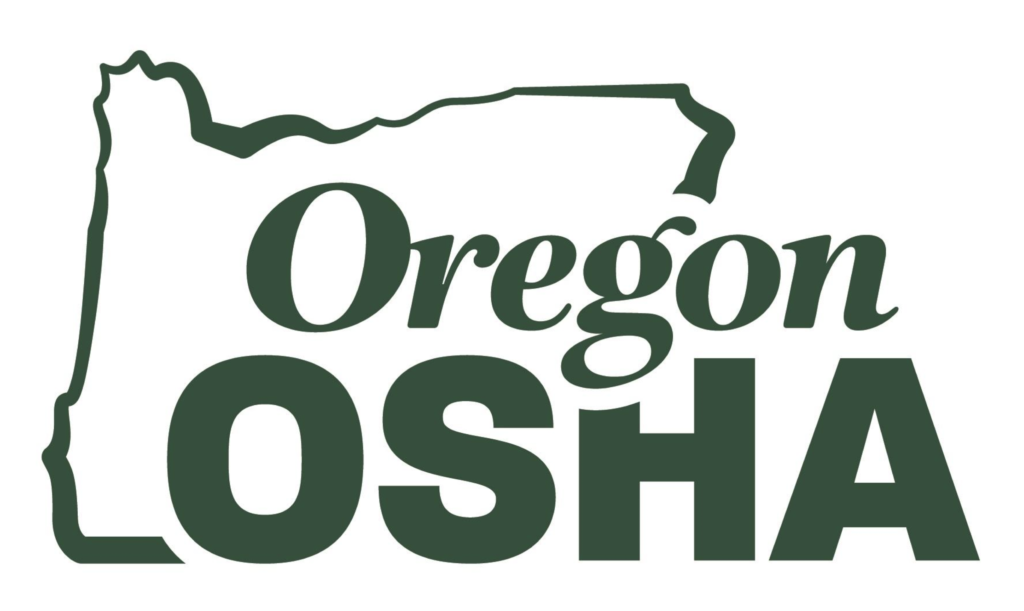DEALER SOLUTIONS CHANGES STARTING JULY 15, 2021
OVDA is changing how Dealer Solutions content will be delivered to our members. Instead of collecting important information and publishing it every three months in a quarterly online magazine (which means some of the information is three months old by the time you receive it), we will be updating our website as information becomes available. So check back here frequently for important information and notices. Every three months we will post a series of questions. Answer the questions to receive your continuing education credit.
**************************************************************************************************************************
Posted by OVDA 9/17/2021

************************************************************************************************************************
Posted by OVDA 8/30/2021

Did you know dealers can now do DEQ testing in-house?
Oregon dealers – in addition to repair shops, car washes and many other vehicle-related businesses – can partner with DEQ to test vehicles for compliance with emissions standards. This means dealers selling vehicles into DEQ testing areas can test the vehicle before it goes off the lot with the new owner instead of issuing a trip permit and waiting for the customer to visit a DEQ testing station and return the certification to the dealership so you can submit the documents to DMV. The program is called DEQ TOO. It is a win-win for your customers and your dealership.
Your dealership does not have to be located within a DEQ testing area in order to take advantage of this program. Any dealer could sell a vehicle to customer who lives in a DEQ area, so any dealer can sign up to participate.
If you’d like to learn more, there is an FAQ here, and you can learn more about how to sign up here. You can also directly contact Justin Haynes with your questions:
Justin P. Haynes
VIP Resource/DEQ Too/RARS Coordinator
Oregon DEQ Vehicle inspection Program
1240 SE 12th Ave. Portland, OR.
Office: 971-673-1631
Fax: 971-673-1640
Email: Justin.Haynes@deq.state.or.us
*********************************************************************************************************************
Posted by OVDA 8/24/2021
The Governor announced today – due to continued concerns about COVID pandemic, particularly the delta variant – a requirement for wearing masks outdoors at public events, effective this Friday (08/27). The requirement only applies when individuals cannot maintain physical distance/separation from others. It also does not apply to athletes actively engaged in competition or schools. (Several other exemptions/exceptions are described in the bulleted list below.)
NEWS RELEASE
August 24, 2021
Media Contact:
Charles Boyle, 503-931-7773
Governor Kate Brown Announces Statewide Outdoor Mask Requirements
With COVID-19 rapidly spreading, masks help stop spread of the Delta variant
(Salem, OR) — Governor Kate Brown today announced new statewide outdoor mask requirements to help stop the spread of the highly contagious Delta variant. Effective Friday, August 27, masks will be required in most public outdoor settings, including large outdoor events, where physical distancing is not possible, and regardless of vaccination status. The Oregon Health Authority (OHA) also strongly recommends masking for outdoor gatherings at private residences when individuals from different households do not consistently maintain physical distance.
“The Delta variant is spreading fast and wide, throwing our state into a level of crisis we have not yet seen in the pandemic. Cases and hospitalizations are at a record high,” said Governor Brown. “Masks are a quick and simple tool we can immediately deploy to protect ourselves and our families, and quickly help stop further spread of COVID-19.
“The Delta variant is much more contagious than previous variants we’ve seen, and it has dramatically increased the amount of virus in our communities. Masks have proven to be effective at bringing case counts down, and are a necessary measure right now, even in some outdoor settings, to help fight COVID and protect one another.”
Under the Governor’s direction, the OHA rule will require masks for all individuals — regardless of vaccination status — in outdoor settings in which individuals from different households are unable to consistently maintain physical distance. The rule does not apply to fleeting encounters, such as two individuals walking by one another on a trail or in a park. While the rule does not apply to outdoor gatherings at private residences, masks are strongly recommended in those settings when individuals from different households do not consistently maintain physical distance.
“It is much easier for people with the Delta variant, compared to people who were sick last year, to infect others around them,” said State Health Officer Dr. Dean Sidelinger. “This is because they have one thousand times more virus in their nose – which means that those around them are much more likely to get sick because this variant behaves so differently. We are starting to see instances where cases are clustering around events, like outdoor music festivals, that happen outdoors. Wearing masks in crowded settings – even outdoors – will help slow the spread of COVID-19.”
The rule aligns with the exceptions outlined in the recent statewide indoor mask requirements, and does not apply to:
- Children under 5 years old;
- Individuals who are actively eating, drinking, or sleeping — as well as individuals living outdoors, such as persons experiencing houselessness;
- Persons playing or practicing competitive sports, or engaged in an activity in which it is not feasible to wear a mask — such as swimming;
- Individuals delivering a speech or performing — such as with outdoor music or theater;
- Mask requirements for day-to-day operations at K-12 schools are not governed by this rule, and will instead continue to fall under the school mask rule. Outside public events, spectator events, and gatherings of the general public on K-12 school grounds will be subject to the rule. Child care and youth programs will continue to follow existing OHA mask guidance; and
- In addition, entities subject to the ADA must continue to comply with that law.
The OHA rule will go into effect this Friday, August 27, however, Oregonians are strongly encouraged to immediately start wearing masks outdoors, as outlined above.
Governor Brown continued, “The combination of vaccines and masks is the most powerful way we can fight this latest surge of COVID-19 and save lives. Vaccination continues to be the best way you can protect yourself and your family from the Delta variant, and the most effective way we can help our exhausted nurses and doctors, who are working around the clock to treat Oregonians sick with COVID in our ICUs — the majority of which are unvaccinated individuals. With the full FDA approval of the Pfizer vaccine this week, we have additional reassurance that the vaccines are safe and effective.”
Additional Materials
A video message from Governor Brown is available here.
********************************************************************************************************************
Posted by OVDA 8/17/2021
2021 Legislative Report
By: Darrell W. Fuller, lobbyist
“It was the best of times, it was the worst of times.” – A Tales of Two Cities by Charles Dickens.
Unfortunately, the Oregon Legislature, during the 2021 Session, during the pandemic and widespread civic unrest, mostly reflected the second half of Dickens’ famous opening paragraph of his timeless novel.
A Session Like No Other
It was certainly the most dysfunctional Legislative Session I have experienced in my 34 years in the state Capitol (my first session, as a college intern, was 1987 – I started lobbying in 1996).
Legislative Leadership is not to be blamed for all of it. Managing a Legislative Session, with a closed Capitol Building, with most everyone clicking in online, was unprecedented. The technological learning curve was high for most everyone. In many ways we were all doing the best we could under distressing circumstances. Near the end of session I bought a new couch – having permanently dented the middle cushion of the old one sitting through hours and hours of hearings day after day.
On the other hand, it was that same Legislative Leadership that steadfastly kept the Capitol closed during the entire session when many, many other state Capitols across the country were open for business.
And it was that same Legislative Leadership that – with a Capitol closed to the public, and to lobbyists – made no effort to reduce the depth, breadth, and scope of the Legislative Session to only the budget, leaving “ordinary” legislative issues to when Oregon returned to a more normal – or at least a more typical – legislative tempo.
As a lobbyist – your lobbyist – my ability to be your eyes, your ears and your voice in Salem were certainly hampered sitting on my couch. No brief meetings walking down the hall with a committee Chair. No coffee shop meetings with committee staff or other lobbyists working out issues. It often took more than an hour of phone calls and doodle polls and email “tag” just to schedule a five-minute meeting over Teams with a Legislator.
And I lost count of how many times I registered to testify during a Public Hearing when there simply was not enough time for everyone to get their two minutes. That left Committee Members making decisions with much less information than they needed to make good decisions on your behalf.
The 2021 Legislative Session had all the makings of a futuristic dystopian novel. But we all meddled through. More than one person has noted that future Sessions will likely spend an inordinate amount of time “correcting” problems with the laws passed in 2021 because almost nothing received the kind of vetting that is normal when everyone is in the Capitol Building. Look for the watch words “unanticipated consequences” to be a running theme for the next several years.
As the session wound down, the Bend Bulletin ran this excellent story. To read a post session review of the Legislative Session from Oregon Public Broadcasting, click here, or from Pamplin Media click here. There is also this telling interview with Senate President Peter Courtney.
And, in case this frustrates you (as it should), let’s not forget the words of Winston Churchill, “Democracy is the worst form of government, except all the others.”
Up Next: The Census and Legislative Redistricting
Every ten years there is a national census to count our population. This information is used to divide the country into Congressional Districts, state Legislative Districts, City Council Wards, and School Board Districts. The process has an enormous impact on politics for the next ten years (when the census is conducted, again). In Oregon, it is the job of the Legislature to draw the Congressional and Legislative District lines. However, delays in collecting the decennial data due to the pandemic prevented the Legislators from redrawing the lines before they left Salem at the end of June. A battle all the way to the Oregon Supreme Court ensued to determine how and when the lines would be drawn (once the data was available). In the end, the Court gave the Legislature a very short period to finish the job once the data because available (in mid-August). This will require a (likely virtual) Special Session of the Legislature in September. If they cannot agree on new maps, the Secretary of State (Shemia Fagan) gets to draw the lines on her own.
The census data suggests many fewer people in central, eastern, and southern Oregon (except Deschutes County which has grown by an astounding 25 percent in the last ten years), and a growing population in urban areas, especially Washington and Multnomah Counties. This change will allow Democrats (who are already in control of most all levers of government at the state level) to consolidate and increase their power.
What Have You Done For Me Lately?
With this report are three substantial documents. Read them at your peril, with Alka Seltzer and ibuprofen nearby. One document outlines the legislation I tracked that is industry-specific (“OVDA – Bill Summary – 2021 Session Final”). Another, longer document (“Bill Summary – General Business – 2021 Session Final”), is all the taxing and regulatory bills I tracked on behalf of all my clients. Finally, there is a document (“Coalition Testimony – 2021 Session”) which includes all the coalition testimony on which the association participated.
The business community was united during the session in our efforts to thwart over-reaching, over-taxing, and over-regulating. In many ways, the broad business coalition held together and had influence. Said another way, things could have been much, much worse. But it still wasn’t great.
In “General Business,” pay particular attention to:
HB2474 / Expanded Oregon Family Leave Act
HB2588 / Being addressed as administrative rules
HB2680 / Would have created taxpayer funded elections
HB2813 / Being addressed as administrative rules
HB2974 / Would have prohibited drug free workplaces
HB3389 / Should soften the blow of UI tax increases due to COVID
SB169 / Changes to noncompete agreements
SB483 / Firing whistleblowers
SB716 / Employee work schedules and child care
In “OVDA – Bill Summary – 2021 Session Final” pay particular attention to:
HB2137 / Moratorium on expired tags, etc. through 2021
HB2183 / Would have created a list of vehicles with bad emissions
HB2311 / Requires vehicle repair businesses to have a $20,000 bond before applying a “mechanic’s lien”. Dealer bond does not qualify. Only required for repair facilities which use mechanic’s liens. OVDA did not support this bill
HB2538 / Would have restricted modifying exhaust systems
HB2690 / Would have changed flat rate vehicle registrations
HB2783 / Would have increased vehicle dealer privilege tax
HB3055 / Note changes to plates and odometer disclosures
HB3324 / Would have created Motor Vehicle Industry Board
Requested by OVDA to begin a long-term discussion on this option
HB3370 / Would have prohibited sureties from canceling bond under certain circumstances
Requested by OVDA
SB164 / Modifies CAT tax for new vehicle dealer trades
OVDA plans to work on expanding this to all vehicle trades
SB466 / Created RV registration tax to clean up abandoned RVs
SB574 / Motorcycle lane splitting (vetoed by Governor Brown)
As you review the documents, please let me know if you have any questions. I’ll do my level best to answer them quickly. You can reach me by email at fuller_darrell@yahoo.com or by phone at 971-388-1786.
Beyond the legislative session, state agencies continue to be very active. Please pay particular attention to Oregon OSHA’s new emergency heat rules for employers. You can read more here.
It is my honor to be “your guy at the Capitol” in Salem. Stay safe this summer. And if you will indulge me: please get prepared. The wildfire season could impact anyone reading this – even if you live in an urban area. Have a “go bag” backed and in your trunk or near the front door. I hope a deputy never knocks on your door at 3 AM and says, “you need to leave now!” But it is already happening all across the state. So, give it some thought. You can find more information at the Red Cross website by clicking here.
OVDA-OPSA-Bill-Summary-2021-Session-Final Bill-Summary-General-Business-2021-Session-Final Coalition-Testimony-2021-Session**********************************************************************************************************************
Posted by OVDA 8/17/2021


https://govstatus.egov.com/or-oha-face-coverings
Spanish language version:
https://govstatus.egov.com/or-oha-cubrebocas
*************************************************************************************************************************
Posted By OVDA 8/11/2021

Oregon’s indoor mask mandate will take effect Friday, Gov. Kate Brown says
*******************************************************************************************************
Posted by OVDA 8/5/2021

| DEQ Rulemaking – Climate Protection ProgramDEQ is asking for Public Comment on the Proposed Program and Rules Summary DEQ will ask the Environmental Quality Commission to adopt new rules and rule amendments to chapter 340 of the Oregon Administrative Rules. This would establish a new Climate Protection Program to limit greenhouse gas emissions from certain sources in Oregon. Public Comment DEQ is asking for public comment on the proposed rules. Anyone can submit comments and questions about this rulemaking. A person can submit comments through email, by regular mail or at the public hearing. Comment deadline DEQ will only consider comments on the proposed rules that DEQ receives by 4 p.m., on Oct. 4, 2021. Submit comment by email Any person can submit comments by sending an email. Commenters should include “Rulemaking Comment” in the email subject line. Submit emails to: GHGCR2021@deq.state.or.us. Note for public university students: ORS 192.345(29) allows Oregon public university and OHSU students to protect their university email addresses from disclosure under Oregon’s public records law. If you are an Oregon public university or OHSU student, notify DEQ that you wish to keep your email address confidential. By mail Oregon DEQAttn: Nicole Singh700 NE Multnomah St., Suite 600Portland, OR 97232-4100 Public Hearings DEQ plans to hold two public hearings, the second of which will be hosted by the EQC. The detai DEQ Rulemaking – Climate Protection Program DEQ is asking for Public Comment on the Proposed Program and Rules Summary DEQ will ask the Environmental Quality Commission to adopt new rules and rule amendments to chapter 340 of the Oregon Administrative Rules. This would establish a new Climate Protection Program to limit greenhouse gas emissions from certain sources in Oregon. Public Comment DEQ is asking for public comment on the proposed rules. Anyone can submit comments and questions about this rulemaking. A person can submit comments through email, by regular mail or at the public hearing. Comment deadline DEQ will only consider comments on the proposed rules that DEQ receives by 4 p.m., on Oct. 4, 2021. Submit comment by email Any person can submit comments by sending an email. Commenters should include “Rulemaking Comment” in the email subject line. Submit emails to: GHGCR2021@deq.state.or.us. Note for public university students: ORS 192.345(29) allows Oregon public university and OHSU students to protect their university email addresses from disclosure under Oregon’s public records law. If you are an Oregon public university or OHSU student, notify DEQ that you wish to keep your email address confidential. By mail Oregon DEQ Attn: Nicole Singh 700 NE Multnomah St., Suite 600 Portland, OR 97232-4100 Public Hearings DEQ plans to hold two public hearings, the second of which will be hosted by the EQC. The details are listed below. Anyone can attend a hearing by webinar or by phone. The hearings will be online and by teleconference only. Hearing #1 hosted by DEQ Date: Sept. 22, 2021 Time: 4 p.m. – 7 p.m. PT Location: Meeting to be held remotely. Visit the rulemaking website Greenhouse Gas Emissions Program 2021 for information on how to join the meeting, which will be available by Sept. 8, 2021. Hearing #2 hosted by the EQC Date: Sept. 30, 2021 Time: 4 p.m. – 7 p.m. PT Location: Meeting to be held remotely. Visit the Environmental Quality Commission website for information on how to join the meeting, which will be available by Sept. 16, 2021. Additional Information To view copies of the notice documents, learn more about this rulemaking, and how to submit comments, you can view the rulemaking web page at Greenhouse Gas Emissions Program 2021. If you want to receive future email notices about this rulemaking, you must sign up at: GovDelivery. You can also obtain more information about this rulemaking by contacting GHGCR2021@deq.state.or.us. NEWS AND ANNOUNCEMENTS: |
*********************************************************************************************************************
Posted by OVDA 7/26/2021
*****************************************************************************************************************************
Posted by OVDA on July 15, 2021

Oregon OSHA adopts emergency rule bolstering protections for workers against the hazards of high and extreme heat
Salem, OR — On July 8 Oregon OSHA adopted an emergency rule that strengthens requirements for employers to protect workers from the dangers of high and extreme heat. The requirements expand access to shade and cool water. They also include regular cool-down breaks, training, communication, emergency planning, and other measures.
The temporary rule is effective immediately and stays in place for 180 days, as Oregon OSHA continues its work on a permanent heat stress prevention rule with an eye on adopting it this fall. The temporary rule was adopted following direction from Oregon Gov. Kate Brown to enact emergency measures.
The temporary rule applies to any workplace – outdoors and indoors – where heat dangers are caused by the weather.
Andrew Stolfi, director of the Oregon Department of Consumer and Business Services, which includes Oregon OSHA, said the division’s emergency measures and ongoing work on a permanent rule underscore the fact that the risks of working in high heat are not going away this or any, summer. “In the face of an unprecedented heatwave in the Pacific Northwest – and tragic consequences – it is absolutely critical that we continue to build up our defenses against the effects of climate change, including extreme heat events,” he said.
“This rule creates greater clarity for employers about the specific steps that need to be taken to protect workers from heat stress dangers at work,” said Michael Wood, administrator for Oregon OSHA “For employees, it further crystalizes their existing rights to protection from heat hazards where they work.”
Oregon OSHA encourages a careful reading of the entire rule, which reflects the best available science, and input from labor and employer stakeholders. The division offers free resources for understanding and implementing the rule. The rule incorporates the heat index, which is what the temperature feels like to the human body when relative humidity is combined with the air temperature. The following is a summary of the rule’s provisions.
When the heat index is equal to or above 80 degrees Fahrenheit employers are required to provide:
- Access to sufficient shade (specifics below)
- An adequate supply of drinking water (specifics below)
When the heat index rises above 90 degrees Fahrenheit, all of the rules for 80 degrees apply and, in addition, employers must:
- Ensure effective communication between an employee and a supervisor is maintained so that an employee can report concerns.
- Ensure that employees are observed for alertness and signs and symptoms of heat illness and monitored to determine whether medical attention is necessary.
- Provide a cool-down rest period in the shade of 10 minutes for every two hours of work. These preventative cool-down rest periods may be provided concurrently with any other meal or rest period required by policy, rule, or law.
- Develop and implement an emergency medical plan and practices to gradually adapt employees to working in the heat.
Access to shade
To be sufficient, shade must:
- Be provided by any natural or artificial means that does not expose employees to unsafe or unhealthy conditions and that does not deter or discourage access or use.
- Either be open to the air or provide mechanical ventilation for cooling.
- At least accommodate the number of employees on recovery or rest periods, so that they can sit in in the shade.
- Be located as close as practical to the areas where employees are working.
- Shade present during meal periods must be large enough to accommodate the number of employees on the meal period that remain onsite.
Drinking water
To qualify as an adequate supply of drinking water, it must:
- Be readily accessible to employees at all times and at no cost.
- Enable each employee to consume 32 ounces per hour.
- Be cool (66-77 degrees Fahrenheit) or cold (35-65 degrees Fahrenheit).
- Drinking water packaged as a consumer product and electrolyte-replenishing drinks that do not contain caffeine (for example, sports drinks) are acceptable substitutes, but should not completely replace the required water.
- Employers must also ensure that employees have ample opportunity to drink water.
Supervisor and employee training
No later than Aug 1, 2021, employers must ensure that all employees, including new employees, supervisory, and non-supervisory employees, are trained in the following topics, in a language readily understood, before they begin work in a heat index equal to or in excess of 80 degrees Fahrenheit:
- The environmental and personal risk factors for heat illness, as well as the added burden of heat load on the body caused by exertion, clothing, and personal protective equipment.
- The procedures for complying with the requirements of this standard, including the employer’s responsibility to provide water, provide daily heat index information, shade, cool-down rests, and access to first aid as well as the employees’ right to exercise their rights under this standard without fear of retaliation.
- The concept, importance, and methods of adapting to working in a hot environment.
- The importance of employees immediately reporting symptoms or signs of heat illness in themselves, or in co-workers.
- The effects of non-job factors (medications, alcohol, obesity, etc.) on tolerance to workplace heat stress.
- The different types of heat-related illness, and the common signs and symptoms of heat-related illness.
The emergency rule documents are available on Oregon OSHA’s Adopted Rules page: Oregon Occupational Safety and Health : Adopted Rules : Rulemaking : State of Oregon
Temporary Rules to Address Employee Exposure to High Ambient Temperatures: Temporary Rules to Address Employee Exposure to High Ambient Temperatures (oregon.gov)
Text of adopted rules: Text of Temporary Rules to Address Employee Exposure to High Ambient Temperatures (oregon.gov)
Workers have a right to a safe and healthy workplace, including the right to be safe from the dangers of heat stress. They have the right to raise health and safety concerns, free from retaliation. If they do not believe their concerns are being addressed, they have a right to file a complaint with Oregon OSHA. The division does not give advance notice of inspections.
Meanwhile, the following free resources are available to help protect workers from high and extreme heat:
- Oregon OSHA’s consultation services offers free assistance with health and safety programs. No fault, no citations, and no penalties are involved.
- The division’s technical experts can help you understand health and safety requirements.
- The federal OSHA heat stress app is useful for planning outdoor work activities based on how hot it feels during the day.
- Oregon OSHA provides heat stress prevention videos in English and Spanish.
A-to-Z topic page about heat stress includes quick guides, fact sheets, and posters in English and Spanish.
************************************************************************************************************************
Posted by OVDA on July 15, 2021

Corporate Activity Tax update
Second-quarter payments due Aug. 2
Second-quarter 2021 estimated payments for Oregon’s Corporate Activity Tax are due by Monday, August 2, 2021. Taxpayers expecting to owe $5,000 or more of Corporate Activity Tax for the 2021 calendar year must make estimated payments.
Guidance about making CAT quarterly payments can be found on the [CAT page]( https://www.oregon.gov/dor/programs/businesses/Pages/corporate-activity-tax.aspx) of the Department of Revenue website. Information includes:
How do I calculate CAT liability?
When are estimated payments required?
How do I pay my estimated taxes?
**************************************************************
Below you will find our issues of Dealer Solutions. Please complete the reading, then the questions to get 40 minutes added to your continuing education. Please submit all questions to OVDA@ORDealers.com.
Jan/Feb/March 2021 Readings & Questions
September/October 2020 Readings & Questions
June 2020 Readings & Questions
April 2020 Reading & Questions
February 2020 Reading & Questions
December 2019 Reading & Questions

